
Although we enjoy the warmth of the fireplace, the odors can be unpleasant. With simple tricks like vinegar, salt, or baking soda, you can keep your home fresh and cozy.
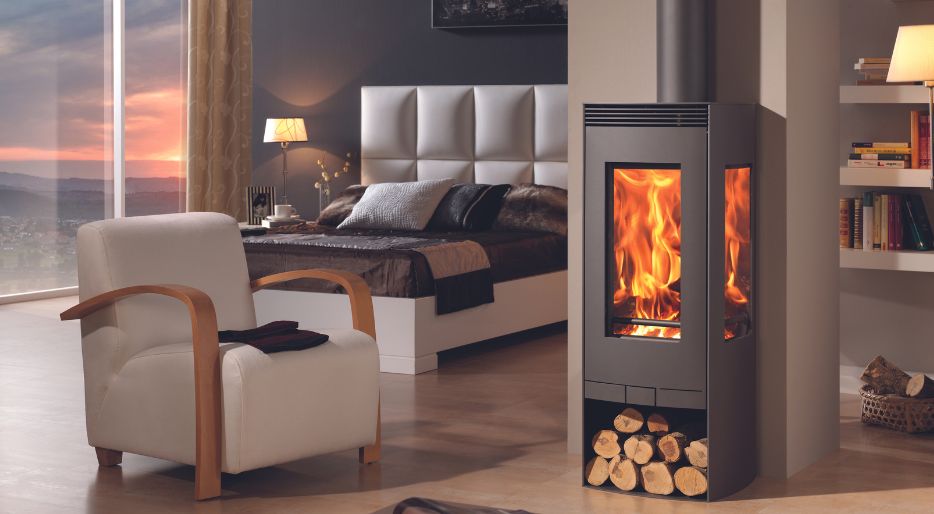
Installing a stove in the home can be an excellent option for providing warmth and creating a cosy atmosphere during the cold months. They have also become one of the top products on the market in recent months. They are a heating method that allows you to provide your home with clean, sustainable and more economical energy. In addition, thanks to their design, they create a cosy atmosphere.
They are a heating method that allows you to provide your home with clean, sustainable and more economical energy. In addition, thanks to their design, they create a cosy atmosphere.
If you are thinking of installing a wood stove or fireplace, read on! At Panadero we give you the most useful tips for its correct installation in your home.
Before installation begins, the following must be considered:
It is important to choose a location for the stove in a room with exits to the outside, so that the smoke can be properly vented. It is also advisable to respect a safety distance of one metre around the stove and 5 to 10 cm from the wall.
We must place a protective sheet between the stove and the floor, especially if the floor of your home is made of wood or carpet.
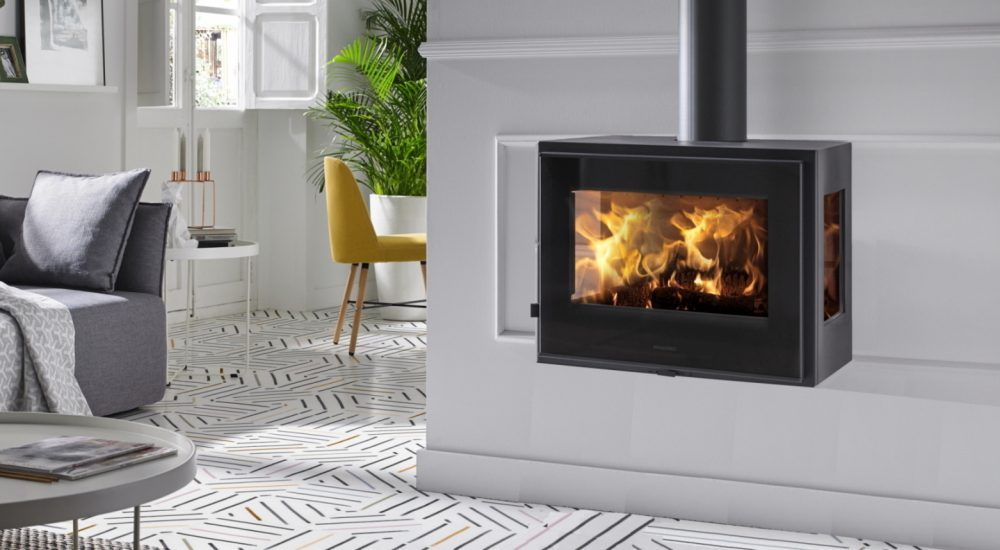
We recommend that the flue pipe is completely straight, without elbows, so that the smoke is discharged correctly to the outside. If it is essential to include an elbow in the flue pipe, it is preferable to seek advice from the manufacturer. In Panadero stoves, we recommend that the angle of the elbow should be equal to or less than 45º and with little travel.
The most favourable option is for the pipes to run inside the house so that heat is not lost.
The last thing to bear in mind in this section is to seal the pipes with refractory putty to ensure that there are no future smoke leaks.
We recommend installing the first pipe with a draught regulator, so that the wood is not consumed so quickly. This way, we heat the room efficiently and save money.
Finally, we must fix the evacuation pipes with a specific putty.
We must always have an outside air intake, to ensure good combustion.
Outdoors, we must leave a space of about 10 metres around the flue, avoiding trees or walls. The pipe should rise more than one metre above the roof.
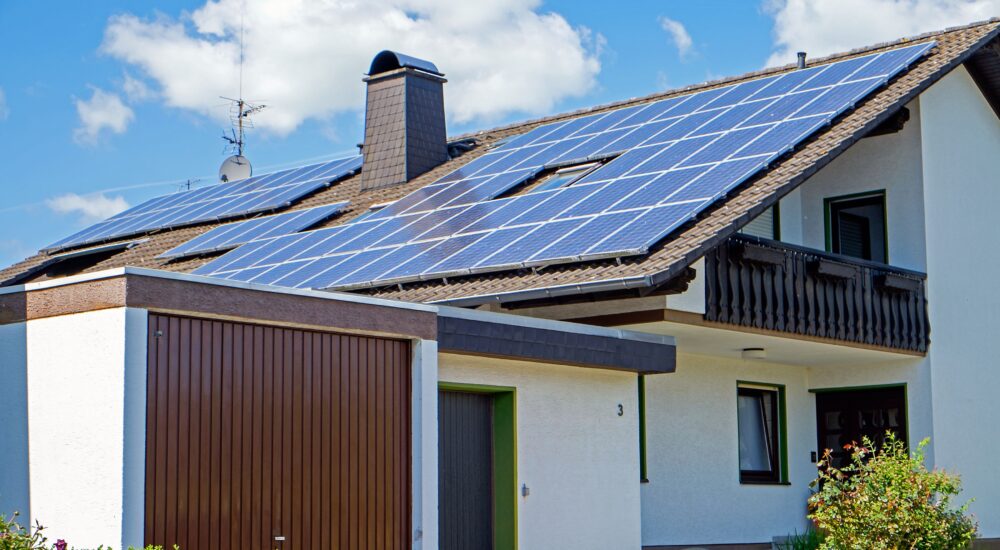
It can be concluded that installing a stove at home can provide you with a pleasant and efficient source of heat. However, it is crucial to follow the proper steps to ensure a safe installation and to comply with local regulations. If you do not feel comfortable doing the installation yourself, it is always advisable to seek the help of a professional. Enjoy the cosy warmth of your wood stove while relaxing in your home during cold winter days.
If you have any questions, please feel free to ask us! We hope this post has served as a guide. Take a look at our blog and find solutions and recommendations to help you with your fireplace or wood stove.
Visit our online store for Panadero wood stoves. If you have any questions or need help choosing the right stove, don’t hesitate to contact us. We will be happy to help you.
Articles of interest:
Did you like this article? If so, help us spread it 😊 . Click on the buttons below here and feel free to share it on your social networks!
Thank you for reading!
↓ ↓ ↓ ↓

Although we enjoy the warmth of the fireplace, the odors can be unpleasant. With simple tricks like vinegar, salt, or baking soda, you can keep your home fresh and cozy.

How to avoid dust in the house when using a wood stove: tips and tricks for a clean and healthy home
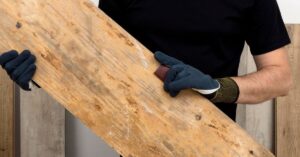
Learn how to remove mould from your wood for use by following the steps in this article.
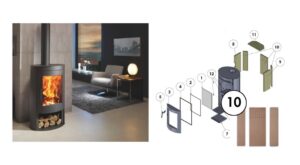
All you need to know: what it is, uses and benefits of wood stoves
To provide the best experiences, we use technologies such as cookies to store and/or access device information. Consenting to these technologies will allow us to process data such as browsing behavior or unique identifiers on this site. Not consenting or withdrawing consent may adversely affect certain features and functions.

From December 19 to January 6, order a wood stove and receive the Helix log holder for free.